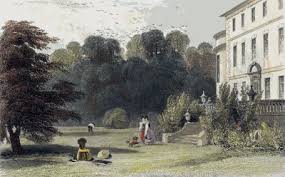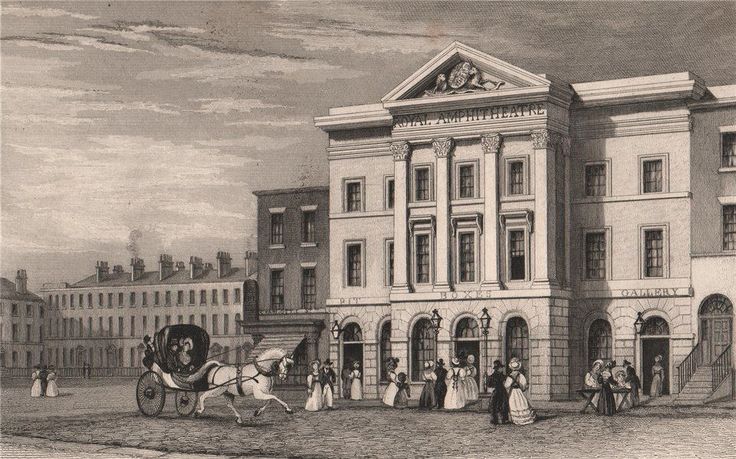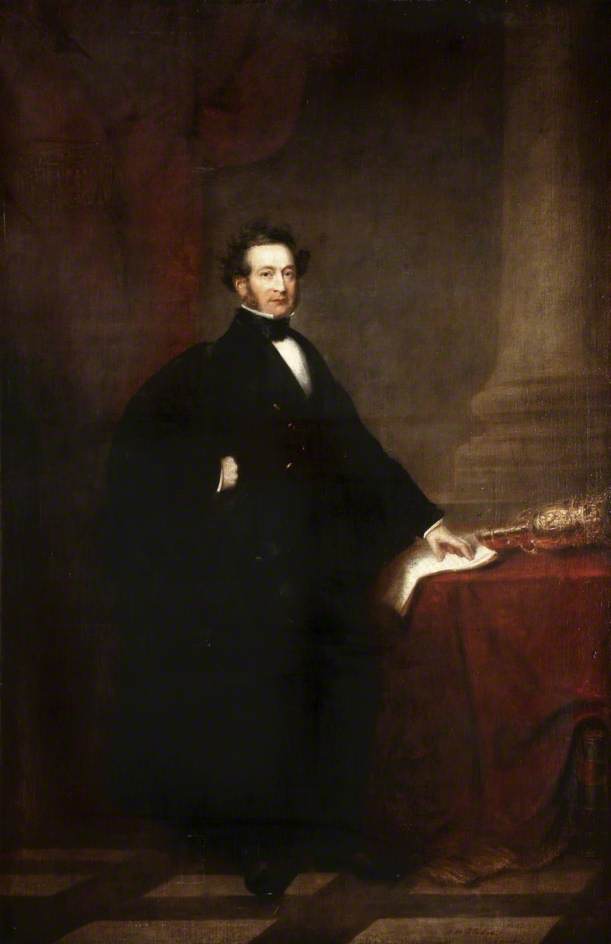CHAPTER XIII. There is a bit more explanation of the 1841 election here, and there are quite a few recent posts about the Irish elections that year. This is Hugh and Josh’s take on the election, with almost nothing mentioned about family. Josh and Adeline had become grandparents the year before, with the birth of Charles and Elizabeth Binns daughter who was named Adeline after her grandmother. Richard Sheil was the first Catholic alderman elected to Liverpool council; Richard Cobden – the Anti-Corn Law campaigner became the M.P. for Stockport that year, and seven years later he and Josh were next door neighbours in the rather grand Westbourne Terrace, in London. Then there is Josh’s mention of the advowson of St Luke’s in Liverpool which he ” had presented to a good and pious man “. An advowson was the right to appoint a vicar, and Josh may well have presented it to a good and pious man, but within three years he had given it to his nephew William Mulleneux.

Returning to his duties in the council, Sir Joshua now devoted himself to the Educational Committee. Shortly before his mayoralty, he had removed to Wavertree Hall, and there had drawn around him men whose names were well known in Liverpool. Locke, Dr. Shepherd, Cobden, the two Stephensons, Brassey, William Rathbone, and Colonel Williams were to be met here. This latter gentleman had been member for Ashton-under-Lyne, and was now justice of the peace. His upright, uncompromising principles were well known. Sir Joshua tells how, upon one occasion, he, as county magistrate, received an application for a summons from a servant, whose master had struck him. The master was an intimate friend of the colonel. On receiving the summons he treated the affair as a joke, failed to come, and a warrant was issued against him, ordering him to appear the following morning at six. It was seven when he came, and found the colonel working in his fields. Advancing, he held out his hand, laughing. ” Stand back, sir, this is our court,’‘ exclaimed the magistrate. ” Take off your hat.” The case was gone into, the defendant admitted the assault, paid the fine, and remained to breakfast with his judge.
Mr. Cobden, accompanied by some members of the League, visited Liverpool early in May, and a monster meeting assembled in the Amphitheatre to greet him.
Sir Joshua presided, and often said : ” It was I introduced Cobden to Liverpool “ The Corn-Law agitation had at this time entered on a new phase. The Whig ministry, beaten on the Jamaica, the Appropriation Clause, and other measures, still clung to office. When a deficit of two million pounds in the budget had to be announced, Lord John Russell made a bold effort to retrieve his popularity by bringing forward the following motion : ” That in a month hence, the House resolve itself into a Committee of the whole House, to consider the Acts relating to the trade in corn.”
With some show of reason, the Tories denounced this as a party move, intended by the Whigs as a means of keeping their hold of office. The Free-Traders, although convinced that the requisite change in the corn and import duties could only be effected by a strong and honest ministry, yet eagerly grasped at Lord John’s announcement, changing, as it did, the whole aspect of the repeal question. From being a theory advocated on platforms the Corn-Law agitation now advanced to the stage of a distinct official policy.
Ministerialists and Free-Traders united to convene meetings all over the country. ” In Liverpool,” says Sir Joshua, ” great excitement was caused by Mr. Cobden’s visit. The feelings of monopolists and anti-monopolists were strained to the utmost pitch. Upwards of thirteen thousand families in the town were dependent upon parish relief. Whatever, therefore, could affect the price of bread was of vital import. Notwithstanding the intensity of feeling aroused, the great Anti-Corn-Law meeting passed off quietly enough. Cobden’s eloquence, his earnest concentrated manner, produced a marked impression on his audience, amongst which were many antagonistic to his cause. ”
The 4th of June was the day fixed by Lord John Russell for bringing the corn question before Parliament, but before that day the Government added another to its long list of defeats. It was beaten on the Bill for the Reduction of Sugar Duties, As under this new check the Whigs still showed no indication of resigning office, Sir Robert Peel moved a vote of want of confidence in the ministry ; which vote being carried by a majority of one, the ministers dissolved Parliament and appealed to the country.
All over England, canvassing now began in right earnest. ” In Liverpool,” says Sir Joshua Walmsley, ” the first step of the Whig notabilities was to endeavour to bring me to a sense of my extraordinary presumption in presenting myself as candidate for the representation of the town. An eminently respectable group assembled in a house of business in Poole Lane, and there waited for me. Doubtless many of these gentlemen remembered my knocking at their office door, twenty-eight years ago. a friendless lad, seeking for employment. When I entered, portentous looks greeted me on all sides. No effort was left untried to shake my determination to contest Liverpool, and any amour propre I may have had was sorely punished ; yet these were the men that ought to have been my supporters. At last the storm broke fairly upon my head. Who was I, to dare to aspire to the position of representative of a town like Liverpool, when so many of higher standing had never dreamt of such a thing ? On what possible grounds could I base such pretensions ? Putting my hand into my pocket I drew out a paper. It was a requisition, presented to me that morning, bearing upwards of three thousand six hundred signatures — the most numerously- signed requisition that had ever emanated from the electors of Liverpool.”
” ‘ On this, gentlemen,’ I said, facing them, for my blood was up, ‘ On this requisition, signed by three thousand six hundred of my fellow-townsmen, I take my stand. And let me tell you, gentlemen, there is not a man here who will not forfeit his reputation for consistency if he does not vote for me. Nay, I go a step farther, and tell you there is not a man here who will not vote for me.’ ”
Thus ended the discussion. The next day in the Liberal papers, and on the walls of the town, appeared Sir Joshua’s address. It was a summary of the political views he had steadily advocated in public and private life. It declared for free trade, for national education, for “ enfranchisement steadily keeping pace with increasing intelligence,” and for the independence of the voter. ” The Legislature,” Sir Joshua said, ” that on the one hand fosters the desire for civil rights, and on the other affords protection to their conscientious exercise, adopts the only policy that can give stability to the Government and satisfaction to the people.”
“During six weeks,” says Sir Joshua, ” attended by Alderman Shiel, I visited personally from house to house, I attended public meetings nightly. That there should be a necessity for such canvassing I regretted, and the use and value of the ballot system urged itself strongly on my mind during this experience. I earnestly charged my supporters, although I should win thereby ten thousand votes, not to coerce anyone or use any undue influence in my favour. I could not but feel flattered at the reception I met with, during my canvass, from my fellow- townsmen of all shades of opinion. It proved to me that in my private capacity I had gained their respect and esteem ; but as a public man I had to encounter the opposition of the Tories, making common cause with the Abolitionists, the sugar-growers, the ship- owners, and agriculturists. The rallying cry of the Tory party, the ‘Church in Danger,’ was the more effectually used from the fact that the Dissenters had lately called for the separation of Church and State. “
” The pulpit lent its powerful aid against me; and in Liverpool, I, who had helped to throw open the Corporation schools to children of every sect and denomination, was emphatically and publicly denounced as an enemy of religion. On the other hand, I had the hearty co-operation of the advocates of free trade, the enthusiastic support of the members of the Tradesmen’s Reform Association.”
These were the active agencies for and against Sir Joshua Walmsley. A passive antagonistic element also remained to be overcome; one that had an influence on the cause of Liberalism all over England. The people had lost confidence in the Whig administration, but, not yet able to grasp the idea of free trade, identified the programme of the rising party with the antiquated Whig ministerial policy. A certain exhaustion likewise was perceptible throughout the country — a languor following the agitation that accompanied the passing of the Reform Bill.
Sir Joshua described himself as belonging to no party. He was simply an ” Anti-Monopolist ; “ in all sincerity he could thus describe himself, for with him, as with all genuine reformers, every political dogma he held was sanctified by a constant reference to the needs of the people. The repeal of the Corn Laws, the removal of all restrictions on commerce, was not a party question, but an aim some men had set themselves to attain for the better welfare of the whole nation.
Sir Joshua’s speeches during this period simply and broadly assert that his sole object in seeking to enter Parliament is to labour for the abolition of the Corn Laws and all monopolies, “ as unjust, and sanctioned by no law, moral or economic, and utterly adverse to the selfish ends of their promoters.”
The members of the Tradesmen’s Reform Association gathered loyally around him. The mass of non- electors, unconnected with the shipping interest, were in his favour. The Whigs no longer opposed him, but they preserved a sullen and passive attitude.
Lord Palmerston, in answer to a requisition to stand for Liverpool, had accepted to do so, on condition that the other Liberal candidate be returned with him.
When this answer was made known, the Tories bestirred themselves to ensure the return of Mr. Cresswell with that of Lord Sandon, whose seat was considered secure. Tuesday, the 28th June, was the nomination-day.
For days previous, preparations had been going on, especially directed to prevent the too close contact opposite the hustings of the friends of the contending parties, for the coming contest, it was anticipated, would be the keenest the old town had known for years. The Tory procession, preceded by a body of forty mounted policemen, was the first to march past. ” No Manchester dictation “ was the favourite device on its banners. Then came the procession of the friends of free trade, gay also with banners embroidered with mottoes : ” Walmsley, Free Trade, and National Education;” ” Walmsley, friend of the people.” Lord Palmerston was not present, but he was represented by Mr. Brocklebank.
Sir Joshua Walmsley was proposed by Colonel Williams. His speech was brief and to the purpose.
” Sir Joshua’s life,” he said, ” had been spent before his fellow-townsmen. He had served them through every grade of municipal offices. His political creed might be summed up in a few words. He believed ‘the object of all just and wise legislation should be the equal distribution of civil rights and privileges.’ He did not advocate sudden changes in the constitution, but he would support every measure, matured by enlightened men, and by them adapted to the altered circumstances of the time, and the increased intelligence of the people. “ To the badgering cries of ” Church ! Church !” he answered that at the sale of the advowson by the corporation, he had bought that of St. Luke, and although he was accused of injuring the Church, he had not sold that living, but had presented it to a good and pious man.
The next was the decisive day. Very early on that summer morning, groups began to form in the streets ; children, plucked by the clergy out of the tainted atmosphere of the Corporation schools, ran about carrying tiny scarlet flags, bearing the inscription : ” The Queen, the Church, and Scriptural Education.” Women, too, clustered together and discussed the issue of the coming struggle. They understood little of the import of the words Whig and Tory, but they knew but too well what hard times meant, and the sight of hungry children before empty cupboards.
” May the Lord send us those who will give us the big loaf, “ was the prayer that summed up their politics.
At eight o’clock the poll opened ; voting was backward ; a perceptible hesitation held back both parties. By noon came the news from London that three Conservatives had been returned for the city. The Tories hoisted a placard proclaiming the tidings.
As the day went on, and victory kept on the Conservative side, the town grew excited. To the cry of “Walmsley, friend of the people,” the Orangemen shouted, ” No Popery.” The shipbuilders began a riot to silence the cry : ” Walmsley and Free Trade.” Before the final state of the poll was declared, Liverpool was in an uproar, and Mr. Whitty and his police were striving vigorously but vainly to restore quiet. The Liberals were beaten ; the Tories had won the day.
Lord Sandon had polled 5,979 votes;
Mr. Cresswell, 5,792 ;
Sir Joshua Walmsley, 4,647,
and Viscount Palmerston, 4,431.
Mr. Whitty ‘s words fully described the effect produced by Sir Joshua’s defeat. ” The town that night was in a state of intense agitation. So soon as it became known that Sir Joshua was defeated, the lower classes broke loose, and the new police force became powerless to preserve order. They were forced to retire, and the mob remained in possession of the streets. Little damage was done, but the yells and shouts against the winners, the burning in effigy of the successful candidates, went on during the night. I never passed a more anxious time, and thought it would never come to an end.”
On the examination of the poll, it was found that several who had signed the requisition to Sir Joshua voted against him; but the influential Whigs, who had taunted him with presumption, had voted for him. There, however, they stopped. The powerful interest of the party had not been used in his favour.



